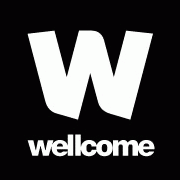Living Well with the Dead in Contemporary Ireland

Credit: Roisin O'Gorman
About
This project aims to develop a medical humanities network equipped with a new and shared vocabulary that goes beyond existing intellectual frameworks to research changing Irish social imaginaries of living well with the dead. Our use of the phrase ‘living well with the dead’ alludes to Jacques Derrida’s (1994, xix) ethical challenge to ‘learn to live with ghosts’, where ‘No justice …seems possible or thinkable without the principle of some responsibility, beyond all living present, within that which disjoins the living present, before the ghosts of those who are not yet born or who are already dead’. Rooted in a recognition of the inadequacies of biomedical imaginaries of the dead, transdisciplinary dialogue and synthesis of theory and methods will be crucial to our search for a new vocabulary, questions and ways of researching social imaginaries of living well with the dead. The project will consist of five workshops and a concluding ‘thinkery’, in addition to some exploratory archival and ethnographic work. We are using University College Cork as an initial study site.
Our aim is to find new ways of thinking about, researching and responding to contemporary public disquiet in Ireland about uncared-for dead bodies. We have decided to focus on two particular populations of the dead. The first of these are the confined dead, which includes those in the poor houses and asylums of old, but also in more recent times, the dead babies and children of women confined in so-called mother and baby homes. From some very preliminary archival research, we know that in the early days of University College Cork, the pedagogical enlisting of the confined dead resulted in public agitation. Furthermore, due to report in 2019, a Commission of Investigation into Mother and Baby Homes is examining, among other things, the practice of transferring remains to universities for medical research and teaching. The second population are the unborn dead. Here we hope to contribute to and extend public debate generated by the recent Irish abortion referendum and explore how to live well with aborted and miscarried foetuses, including those with fatal foetal abnormalities. These are questions that are only becoming askable in Ireland. They also remind us that the dead and dead body are not stable concepts.
Activities
Transdisciplinary workshops
Led by world-renowned scholars with relevant specialisms, these day-long workshops will explore how the dead body is conceptualised and researched in different disciplines. Participants will be members of the network, but the workshops will be open to all in UCC.
Selected to advance the project’s aims of consolidating the network and promoting transdisciplinary dialogue, themes will include:
-
Social imaginaries of the dead - 19th September, CACSSS Seminar Room ORB G27, 9:00am - 5:00pm
-
Remnants, Revenants and Remembrances - A workshop with Margrit Shildrick and Richard Gough (Centre for Performance Research) - Wednesday, 31st October 2018, 9am-1pm in CACSSS Seminar Room ORB G27
-
The work of the dead: Bodies, rights and emotions - 23rd January, Boole Library Creative Zone
-
Theaters of the dead - 19th March, CACSSS Seminar Room ORB G27, 11pm - 5:30pm (4-5:30pm - in Kane building B10)
-
Technologies of Death and Dying at the Beginning of Life - Thinking with Posthumanist Feminist Theories - 25th March, CACSSS Seminar Room O'Rahilly Building G27, 3-6.30pm (5-6.30pm in Kane B10 Film & Screen Media Centre)
-
A Thinkery on Living Well with the Confined Dead - 10th May, River Room, The Glucksman Gallery, 9:15am-5pm
Exploratory archival and ethnographic research
Exploratory research will be undertaken using UCC as an initial study site. This will include archival scoping to identify extant resources since the establishment of the university in 1845. Records relating to the pedagogical enlisting of the dead in the teaching of anatomy and archaeology will be a key focus of this archival research. Additionally, exploratory ethnographic research, including observations and interviews, will be undertaken examining current anatomy and archaeology postgraduate students’ experiences and perspectives on their pedagogical encounters with the dead. This exploratory research will be informed by and inform discussions at the workshops.
A public Thinkery on living well with the dead in contemporary Ireland
The project will culminate in a public ‘Thinkery’ combining discussion of outcomes from the workshops and exploratory research. The idea of a thinkery comes from Ivan Illich who envisaged it as a ‘search of surprise, a place where people go who want to have help redefining their questions rather than completing the answers they have gotten’. Participation will extend beyond the network to include members of the public and representatives of regulatory bodies, such as the Medical Council and Health Services Executive. The event will be recorded and a podcast made freely available online.
For more information, contact robert.bolton@ucc.ie


